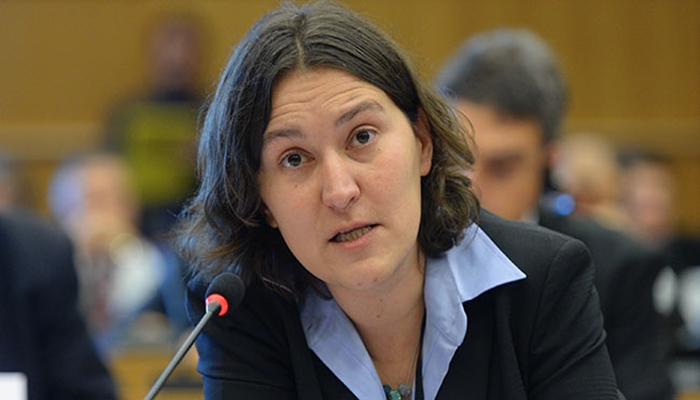Kati Piri, Turkey rapporteur for the European Parliament, said that in view of the June 24 election results, formal suspension of EU accession talks has become unavoidable, underlining that the union must reshape its soft power, support Turkey’s civil society and invest in people-to-people contacts.
“The integration of Turkey in the EU is – at least for the coming years – no longer a viable option. A pragmatic, transactional relationship with Ankara is the most likely outcome,” Piri wrote in an article published on the Progressive Post website, evaluating the results of the presidential and parliamentary elections in Turkey on June 24.
The full text of the article as follows:
“On 24 June, Erdoğan claimed victory in his country’s presidential election, winning an outright majority in the first round with 52.6% of the votes. The electoral campaign was marked by an unfair competition. It was conducted under a stifling state of emergency (in effect since July 2016), with more than 90% of the media under control of the ruling party, and with many government critics – including presidential candidate Selahattin Demirtaş – in jail.
“Despite the lack of opportunities, the opposition recognized that president Erdoğan remains the most popular politician in Turkey. His election triggers the entry into force of a controversial presidential system of governance, narrowly adopted in a referendum last year. The role of prime minister will be abolished, judicial and parliamentary oversight will be weakened and president Erdoğan will be given the unchecked power to appoint and dismiss his cabinet, to dissolve the parliament and to pass decrees with the force of law.
“The election’s outcome is likely to shape the country for years to come and now that the last obstacle for the introduction of a highly undemocratic executive presidential system has been removed, formal suspension of EU accession talks has become unavoidable – as already stated by the European Parliament after the narrowly won referendum last year. Turkey’s politics, both domestic and foreign policy, will now be shaped by one man, without the ‘hindrance’ of institutional checks and balances. The ‘New Turkey’ is in stark contrast with the principles of a liberal democracy, and therefore also with EU standards. In a weakened parliament, Erdoğan’s AKP will continue to rely on its coalition with the ultra-nationalist MHP. This alliance makes a renewed effort to address the Kurdish question and the restoration of fundamental rights unlikely. Whether the anti-Western rhetorics will also continue, remains to be seen.
“Despite the worrisome situation, there does remain a sliver of hope. Turkey has a young, dynamic population, with a strong middle class and a decades-long Western approach. Half of the population is in strong disagreement with the political direction Turkey is heading. Despite the highly unfair electoral environment, many people believed a change was possible. Presidential candidate Muharrem İnce managed to get more than 30% of the votes, something his party CHP never reached in the last 14 years. Yes, the situation in Turkey is worrisome, but the EU must take into account that President Erdoğan is not our only counterpart. The message of the EU cannot be to isolate Turkey and to abandon its population. Also in strategic terms, Turkey remains an important partner. The EU and Turkey are linked by a customs union, and Turkey’s open economy will remain dependent on foreign investment. The EU-Turkey deal hasn’t lost its importance, as Brussels’ internal divisions on how to deal with migration have only increased, therefore making the EU more reliant on third countries.
“The integration of Turkey in the EU is – at least for the coming years – no longer a viable option. A pragmatic, transactional relationship with Ankara is the most likely outcome. The EU must reshape its soft power, support Turkey’s civil society and invest in people-to-people contacts. Turkey’s democratic forces have time and again proven their resilience. If they have not given up on their country, neither should we.”



